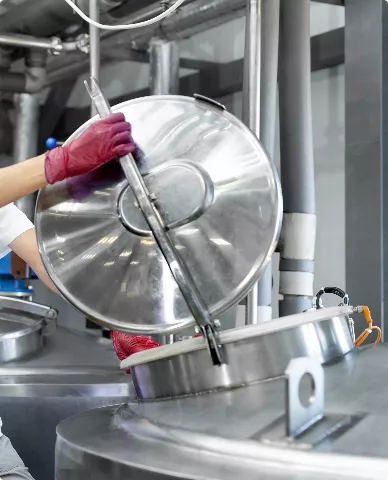PROCP
PROCP is a designation for processing plants designed to process animal by-products in compliance with EU regulations.
PROCP is an abbreviation referring to a processing plant that is involved in the processing and treatment of animal by-products (ABPs). These facilities play a key role in ensuring the safe and efficient handling, processing and use of ABPs in compliance with EU regulations. (The abbreviation PROCP stands for PROCessing Plant, meaning a plant for processing animal by-products.)
Key aspects of PROCP
Designation of facilities: Processing plants are facilities where animal by-products (ABPs) are processed into usable materials such as processed animal proteins, fats and other derivatives.
Processing standards: PROCP facilities must comply with strict EU regulations, which specify the methods and conditions under which ABPs must be processed. This includes standards for:
-
Heat treatment: Ensuring that ABPs are heated to specific temperatures to eliminate pathogens and ensure safety.
-
Particle size reduction: Reducing the particle size of ABPs to ensure consistent processing and compliance with regulatory standards.
-
Chemical treatment: Application of approved chemicals to ABPs in order to achieve the desired processing results while ensuring safety.
-
Safety and compliance: Processing plants must implement comprehensive safety protocols to protect workers, the environment and public health. This includes regular monitoring and documentation of processing conditions, compliance with microbiological standards and compliance with shipping and storage regulations.
Final products: Final products from a PROCP facility may include:
-
Processed animal proteins (PAPs): used in feed for non-ruminant animals, aquaculture and other applications.
-
Animal fats: used in various industries – including biofuels, cosmetics and animal feed.










